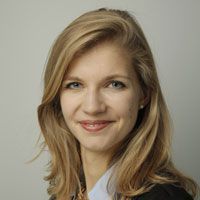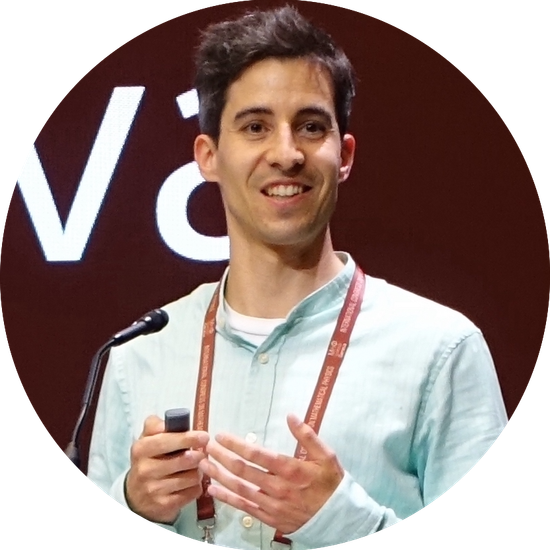An error occurred while loading the video player, or it takes a long time to initialize. You can try clearing your browser cache. Please try again later and contact the helpdesk if the problem persists.
Whether we stream our favorite series, develop new drugs or have us being chauffeured by a self-driving car -- machine learning is an essential part of our modern life, and of our future. But the growing amount of data and our increasing demands pose difficulties for today's classical computers. Can quantum computing overcome these challenges? What potentials does the emerging field of quantum machine learning have?
In this course, we will not only learn about quantum machine learning and its prospects, but we will also solve concrete tasks with both classical and quantum models. This course is aimed at students, experts and enthusiasts of quantum computing or machine learning. Prior knowledge about quantum computing or quantum information are strongly recommended.
语言: English
Advanced, Big Data and AI, Quantum Computing
课程信息
Machine Learning has revolutionized our lives: image classification, natural language processing, drug discovery, weather forecasting, predictive maintenance, etc. The list of applications grows continuously. All of these models rely on the availability of powerful computers. In fact, over the past decades the computational resources of one chip have doubled every year. Currently, however, we are approaching the physical limitations of what classical computers can achieve. Yet our resource requirements keep increasing! Research institutes and industry are, thus, looking into alternative computing models such as quantum computing. With this emerging technology we may be able to push computational applications even further and tackle new challenges that are currently out of reach for existing classical processors.
As an interdisciplinary topic, this course is aimed at a broad audience. Students, experts, professionals and enthusiast from the fields of quantum computing, machine learning, physics and computer science are welcome to enroll!
In this course we will
- understand how to build both basic and advanced quantum machine learning models
- implement classical and quantum algorithms to solve machine learning tasks with Python and Qiskit
- learn about roadblocks and challenges of quantum machine learning
- explore the future prospects of quantum machine learning
Check out the course structure below for more information.
Quantum Computing Summer School:
Please note that this course has been reactivated as part of the Quantum Computing Summer School. You have the opportunity to complete the course independently with a certificate of achievement.
New deadline for submitting graded assignments: Tuesday, October 15, 2024, at 11:55 PM UTC.
Please note that in this course, there is only one graded assignment
你将学到什么
- What is quantum machine learning?
- What are quantum machine learning algorithms?
- What are suitable applications of quantum machine learning?
- How can I implement quantum machine learning algorithms?
- What are potentials and bottlenecks of quantum machine learning?
本课程适用于谁
- Students
- Enthusiasts with quantum computing background
- machine learning experts
课程内容
Intro:
This course aims at enabling you to discover the field of Quantum Machine Learning. You will learn about the basics, such as parameterized quantum models and training algorithms, investigate promising models which are compatible with today's quantum hardware, and learn how to write Quantum Machine Learning algorithms by yourself with Qiskit.Week 1:
After giving an overview answering the question: "What is Quantum Machine Learning?", we will present a general introduction to machine learning followed by a deep-dive into Support Vector Machines and their quantum counter-part Quantum Support Vector Machines. Finally, we present a variational Quantum Machine Learning classification algorithm called the Variational Quantum Classifier.Week 2:
In the second week of the course, we will firstly discuss how Quantum Machine Learning models are being trained. Then, we have a closer look at two specific models, i.e., Quantum Generative Adversarial Networks and Quantum Boltzmann machines. Furthermore, we give a practical coding introduction to Machine Learning with Qiskit. Lastly, we explore the potential of Quantum Machine Learning in a discussion with an expert in the field.Final exam:
We hope you enjoyed this course on Quantum Machine Learning and wish you good luck for the final exam!I like, I wish
订阅本课程
Learners
评分
本课程已由366位用户进行了五分制评分,平均得分为3.88
证书要求
- 课程证书 授予者需要至少取得课程总分的百分之 50%。
- 参与证明 授予者需要至少学习了所有课程资料的百分之 50%。
- 完成课程可获得开放徽章。
欲知详情,请访问证书指南.
该课程提供者

Dr. Christa Zoufal is a Quantum Applications Researcher at IBM Quantum. She received her doctoral degree from ETH Zurich on her thesis about Generative Quantum Machine Learning. Her expertise combines knowledge about quantum information theory and computational methods. As part of the Quantum Finance & Optimization group her current research focuses on the exploitation of quantum computing within the context of quantum machine learning and optimization problems.

Julien Gacon is a Ph.D. candidate working jointly with the Quantum Technology group at IBM Research Europe — Zurich and the Computational Quantum Science Lab at EPFL, Lausanne. His current research focuses on closing the gap of quantum algorithms and near-term quantum devices on both the algorithmic and circuit level. Prior to this position, he worked on the open-source software Qiskit and continues developing core and applications packages during his research.
He received a B.Sc. and M.Sc. degree in Computational Science and Engineering from ETH Zurich. During his studies, he focused on numerical simulation techniques and specialized in Quantum Simulation and Computing, and Astrophysics.

Dr. David Sutter is a Research Staff Member of IBM Quantum at IBM Research — Zurich. He got his PhD in theoretical physics from ETH Zurich under the supervision of Prof. Renato Renner. David's research interests include theoretical aspects of quantum computing as well as quantum information theory.